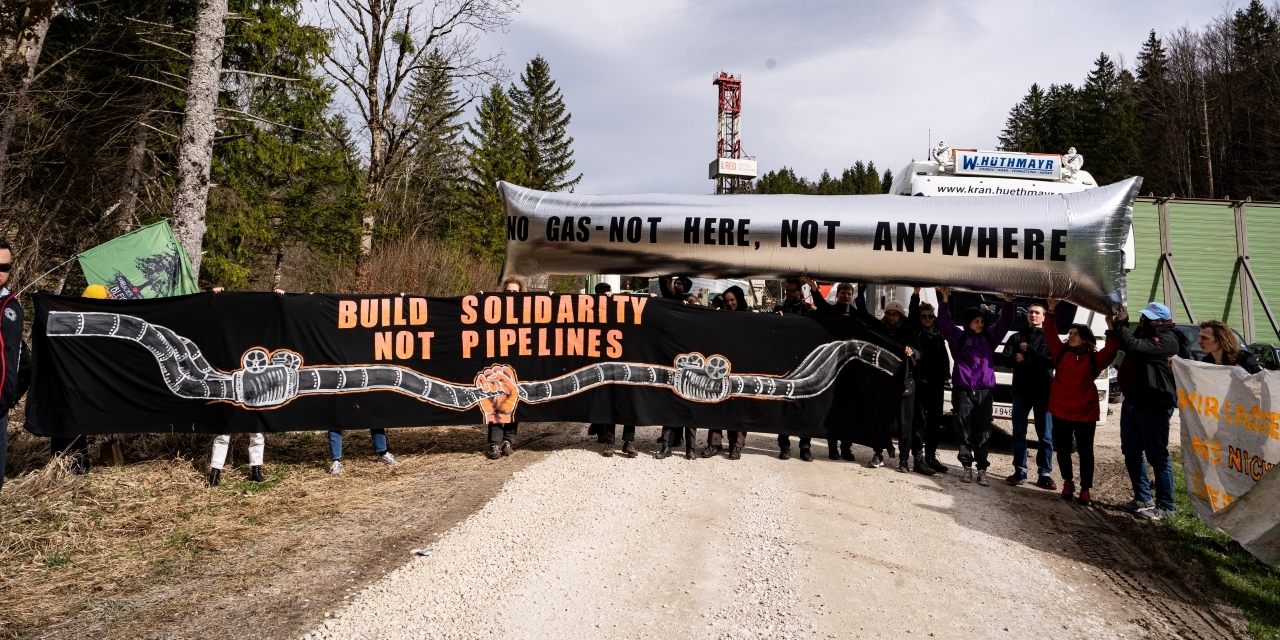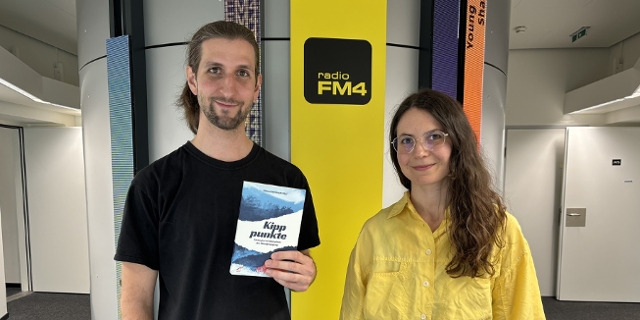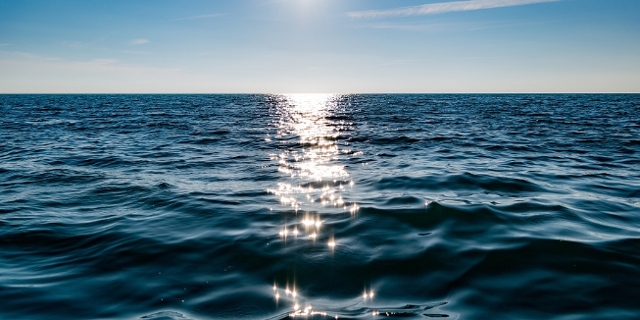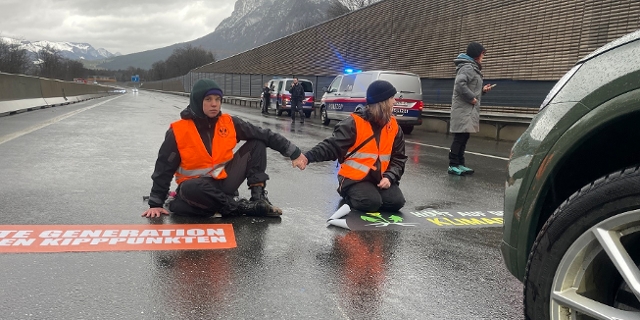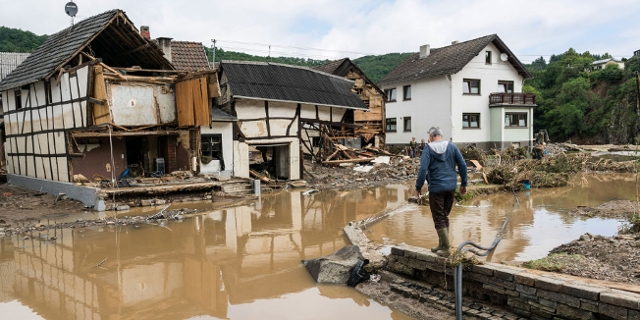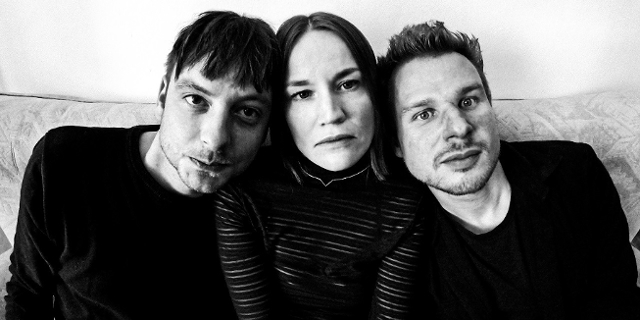Molln: To Drill or Not To Drill?
The road from Molln to the „Welchau-1“ drilling site runs along the „crooked“ Steyrling. This fast-running, clear-watered stream runs down from Sengsengebirge and the Kalkalpen National Park; a paradise of wet forests, abundant birdlife, wild orchid species and thousands of butterflies. This is one of the most important corners of Austrian nature.
Local artist Daniela Woegerer lives on the route; she’d chosen the Krummer Steyrling valley for its quiet serenity. It had always been a haven of peace for her where „you could hear the beat of the birds’ wings in the air.“
The Industrialisation Of An Oasis
That has now changed dramatically. Now, dozens of times per day, the rumble of heavy tires even drowns out the sound of the river and, just two kilometres from the national park boundary, there’s a red and white drilling tower.
In the months since the Australian-owned company ADX Energy started their test drilling for gas, Daniela says her oasis of peace and nature has been destroyed.
ADX says they understand Daniela’s concerns and sympathize, but that they are trying to be as minimally invasive as possible. However if the project gets the green light, there will be more drilling towers and a pipeline to be dug. ADX says it is a necessary price to pay for more energy independence and the protection of Austrian prosperity.
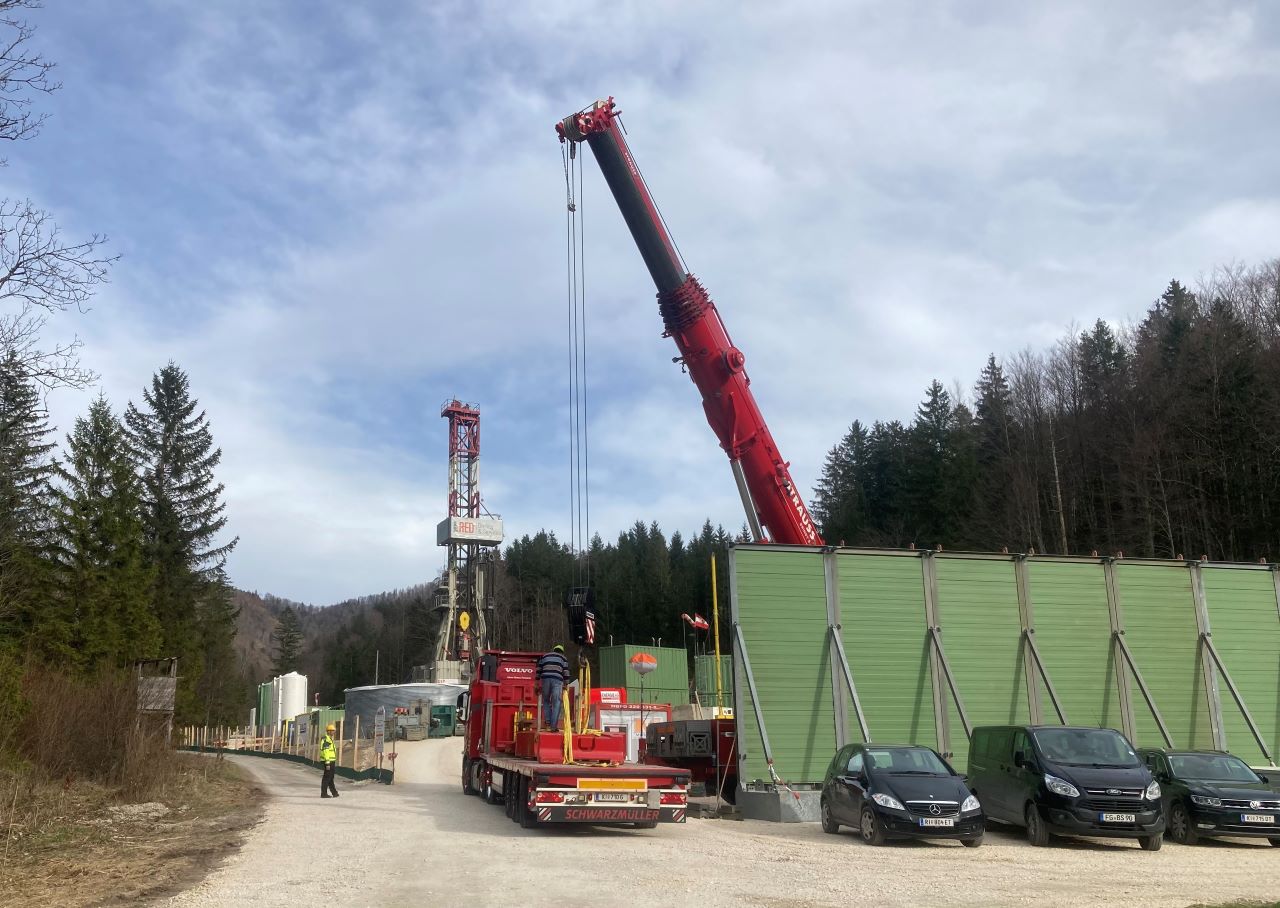
Chris Cummins
A Citizens Initative
The price is too high, says Daniela. Something unique and precious is at risk of being thrown away: „Because this is a national park region, we were sure this sort of thing couldn’t happen here,“ she told me as we stood in the shadow of the drilling tower. „We were sure that people would appreciate that and the area would be preserved. It’s been a huge shock that when it comes down to it, all that seems to count for nothing.“
Daniela is part of a citizens’ initiative called Pro Nature Steyrtal that is fighting the plans to make her biodiversity-rich valley a new focus of Austria’s domestic fossil fuel extraction industry.
A Significant Discovery
Since the 17th of March she and her allies have a massive fight on their hands. During drilling at a depth of 1,500 metres ADX’s hopes of gas reserves were confirmed. The company has described it as „historic“, suggesting there might be as much as 24 billion cubic meters of gas reserves down there.
If this is confirmed by further tests, and if it’s feasible to pump the reserves in their entirety, that would be enough down there to cover Austria’s gas needs for 3 years.
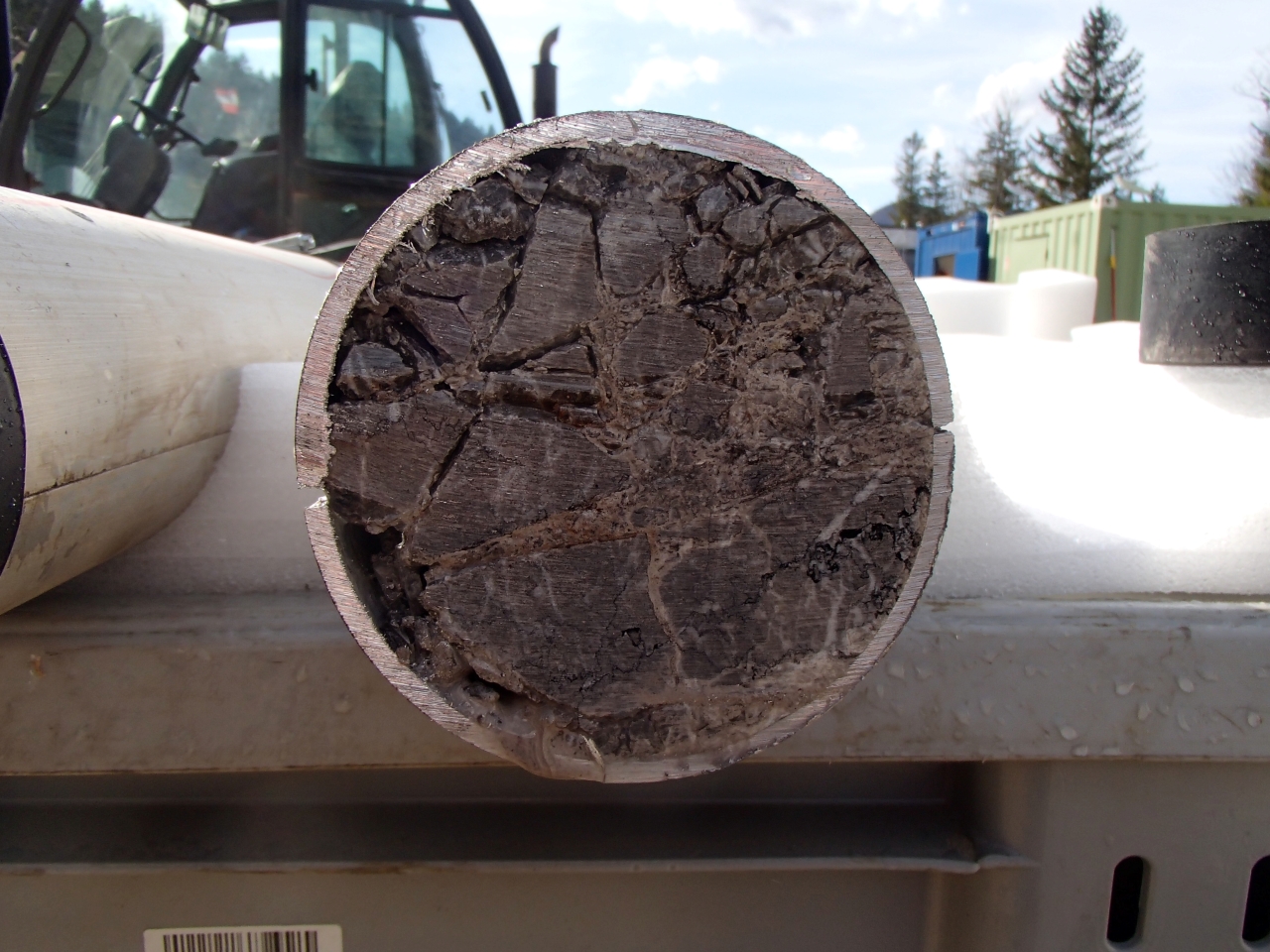
ADX
Will This Impact Putin?
Activists and climate campaigners, expecting delays, say such reserves would take years to develop and would have no impact on the current energy security problems Austria faces.
However Alan Reingruber, the Managing Director of ADX Vienna, told me he’s optimistic that this gas could be entering the energy mix in Austria in three years’ time.
Given current high import prices and concerns over how Austria’s reliance on Russian gas is helping fuel a war of aggression, some locals feel the industrialization of this once quiet corner is a price worth paying.
Shouldn’t The Fossil Fuel Era Be Over?
But there is a huge elephant in the room: the climate crisis.
Any new fossil fuel expansion after the Paris Climate Agreement is controversial. In 2021 the International Energy Agency has stated clearly that there can be no new oil and gas infrastructure if the planet is to stay within the 1.5 degrees global warming limits pledged back in 2015 at COP21.
Yet these warnings have been completely ignored. The ADX project in Austria is one small part of a worrying global trend. New research from Global Energy Monitor, a San Francisco-based NGO, shows that the world’s fossil-fuel producers are on track to nearly quadruple the amount of extracted oil and gas from newly approved projects by the end of this decade.
An International Protest
That’s why, at the end of March, a bus-full of international protesters had rumbled the narrow road to the drilling-site, a crew including anti-gas campaigners from India, Africa and North America who had gathered in Vienna for the anti-gas People’s Summit. This international protest had been coordinated by Anselm Schindler of Block Gas.
„This protest is important because we are in the middle of the climate crisis,“ Anselm told me, „and every further project that is now planned for the next few years is a further step towards worsening the crisis and means that we are moving further and further into this fossil lock-in.“
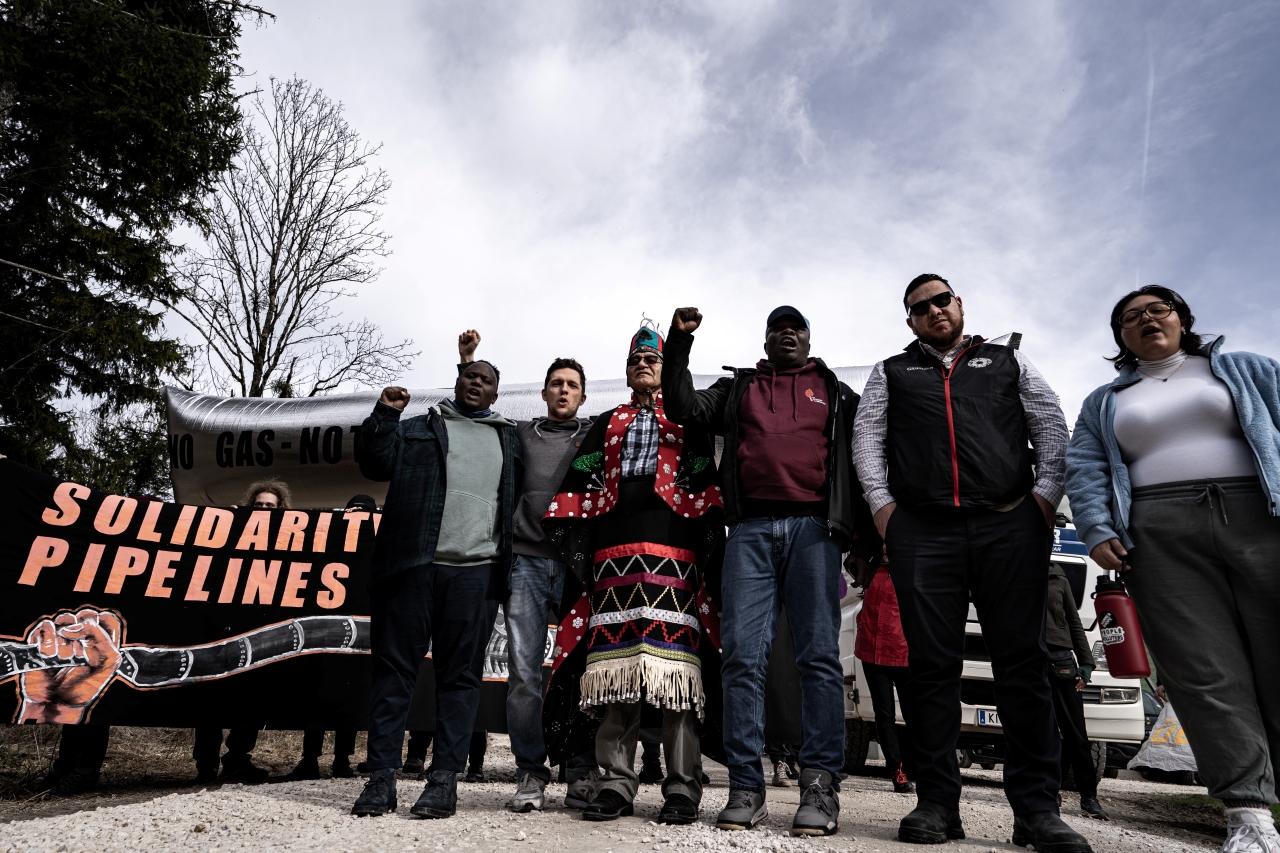
Block Gas
We should be in the middle of a vigorous transition away from fossil fuel systems to an energy system based on renewables. This green transition or „Energiewende“ will require committed investment and political will - it is a race against time. That’s why Anselm Schindler argues that every euro spent on fossil fuels projects is a euro that should be spent on expanding Austria’s renewables.
Johannes Wahlmüller of Global 2000 says it is absurd that Upper Austrian politicians are blocking wind energy expansion in Upper Austria on the grounds of „landscape destruction“ while green-lighting fossil fuel projects on the edge of a national park. That sort of thinking is out of date, he says, and, embarking on our road to climate neutrality, we are almost out of time.
„We Standing Up For The Future Of The Planet“
One protestor stood out for his bright blue and red cylinder hat, and his black and red gown decorated with images of green frogs. Chief Namocks is the hereditary chief of British Columbia’s Indigenous Wet’suwet’en people. He’s led anti-pipeline protests in his Nation’s land (and has also been in trouble for shooting a dog) and he sees this local project in the heart of Austria as part of a global struggle against fossil fuel extraction. „We’re standing up for what is right and for the future for this entire planet,“ he told me, „We need to let the world know that we are of one mind and one heart.“
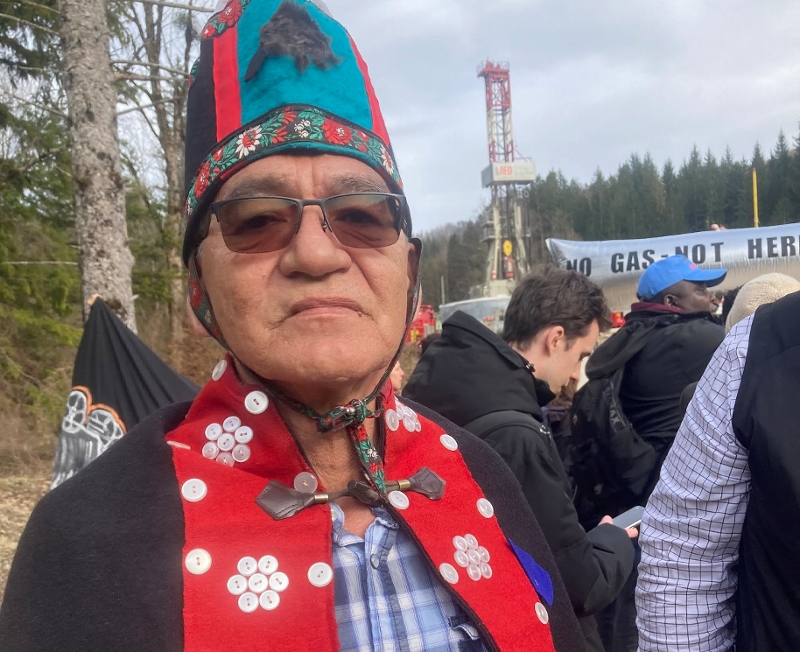
Chris Cummins
„We Need Answers“
Back in Vienna, at the Austrian offices of ADX, managing director Alan Reingruber presents himself as a realist who would be happy to be out of a job. Don’t paint me as the bad guy, he implies; ADX has been asked to drill for gas because the green transition has developed far too slowly and Austrian life would grind to a halt without fossil fuels. So at the government’s request, he says, his company is looking for badly needed domestic energy source. The protesters accuse ADX of being irresponsible for drilling for gas in a time of climate crisis, but he claims the opposite is true:
„As long as we do not have sufficient green energy or renewable energy available, we must be able to provide answers as to how we can fill this gap between consumption and supply of energy,“ he told me in a meeting in his offices. „In my opinion, it is irresponsible to not having an answer and not to offering an opportunity to react to the situation.“
Slow Start, Difficult Decisions
Austria is dependent on gas and cannot break that dependency easily. That is partly due to poor decisions made over the many decades since we should have understood the gravity of the climate crisis (remember Jimmy Carter was putting solar panels on the White House roof back in the 1970s).
In Austria new housing was still being unveiled with gas infrastructure until the end of last year and it will take billions of Euros and many years to refit and refurbish heating systems in general. Since we can’t wish away this dependency with a magic wand, we have to make difficult decisions.
Alan Reingruber sees gas as a partner in the energy transition: „We still need natural gas. If we use a lot of wind power and a lot of photovoltaic power, we will need this energy source to keep the entire system stable and maintained.“ And he points to important Austrian industries such as concrete and steel which are reliant of gas, „an energy source that is also suitable for high-temperature processes.“ These industries might not be beneficial for the environment, but they all play a role in providing Austria with prosperity and employment.
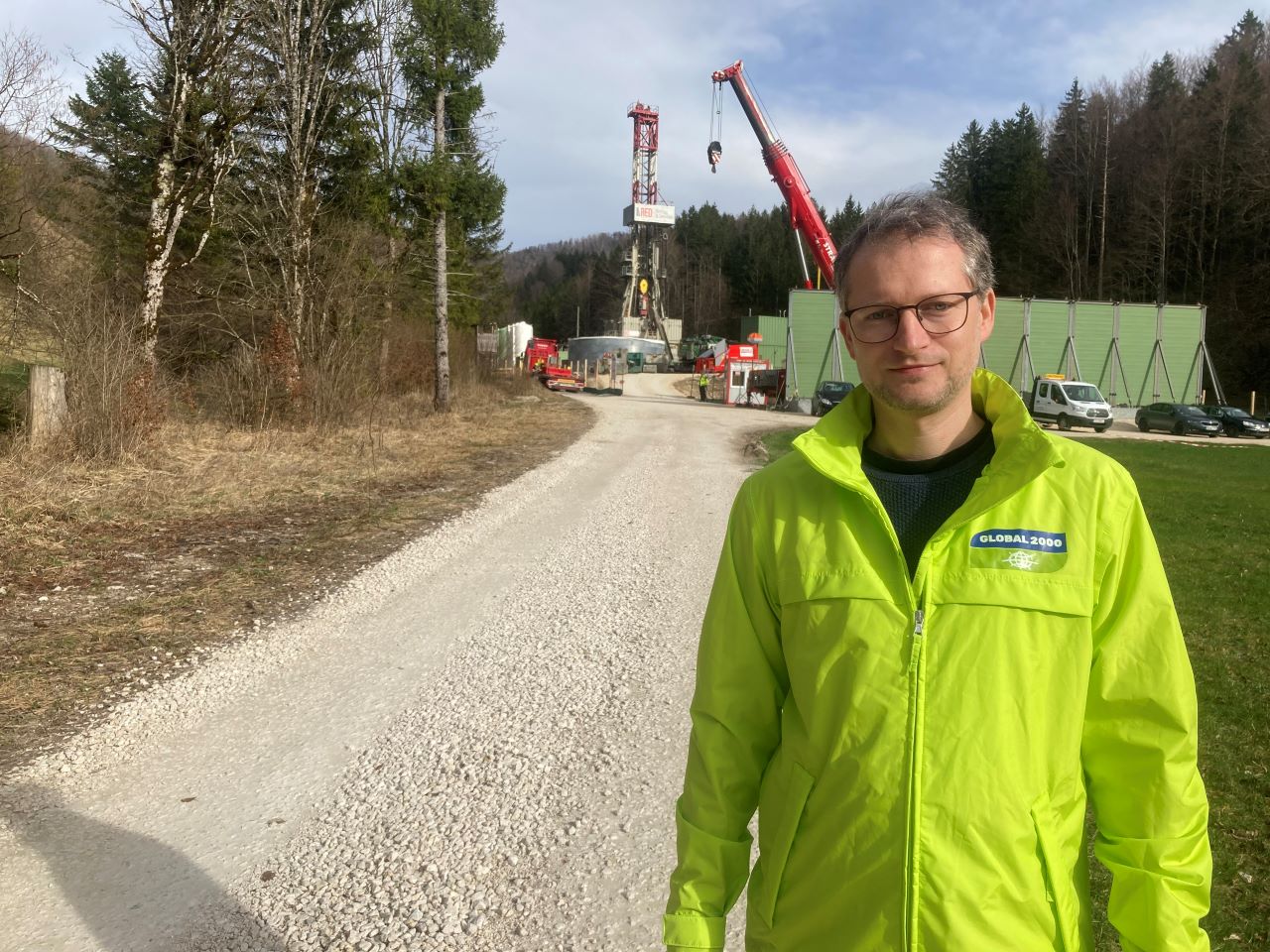
Chris Cummins
Don’t We Have Enough Reserves Already?
Johannes Wahlmüller, the climate and energy campaigner of Global 2000, recognizes that Austria is still dangerously dependent on gas, but points out: „We can only meet the 1.5 degree limit if we stop developing new deposits of oil, gas and coal. The existing reserves are completely sufficient and only a small part of them can be exploited anymore. This also applies to Austria.“ That is the scientific consensus represented by both the IEA and several UN IPCC reports.
A Moral Choice?
But the problem is that these existing deposits are controlled by regimes that range from the merely autocratic, such as Qatar, to the downright murderous, such as Russia. Even gas shipped or piped from western allies has significant ecological drawbacks. That’s why Alan Reingruber argues that domestic gas production is, on many levels, the lesser evil:
„On the one hand there is the moral issue of whether we want to finance a warring party with natural gas imports. Then of course there is also the climate-relevant issue of whether we want to import fracking gas, which has a completely different CO2 footprint than domestically produced natural gas.“
If we must use gas, then why not Austrian gas?
The Science Is Clear
For an international perspective, I related these arguments to Scott Zimmermann of the Global Energy Monitor. He said the reasons given by oil and gas producers for continuing to discover and develop new fields are remarkably similar all over the world; energy companies and national governments cite greater energy security, more environmental oversight and geopolitical advantages.
But in his view „none of these hold water.“ He says there is a bottom line: „The science is clear: no new oil and gas fields, or the planet gets pushed past what it can handle.“
Publiziert am 03.04.2024







